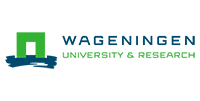
Policies stressing circularity in our economy is becoming ever more important. Understanding the economic implications is critical for assessing the policies. The market structure and performance of the value chain, in combination with technical change, influence- and are influenced by circular bioeconomic policies. A company that wants to succeed in the circular bioeconomy must be prepared for the challenges and opportunities ahead.
Read more
Policies stressing circularity in our economy is becoming ever more important. Understanding the economic implications is critical for assessing the policies. The market structure and performance of the value chain, in combination with technical change, influence- and are influenced by circular bioeconomic policies. A company that wants to succeed in the circular bioeconomy must be prepared for the challenges and opportunities ahead.
Policies stressing circularity in our economy is becoming ever more important. Understanding the economic implications is critical for assessing the policies. The market structure and performance of the value chain, in combination with technical change, influence- and are influenced by circular bioeconomic policies. A company that wants to succeed in the circular bioeconomy must be prepared for the challenges and opportunities ahead.
This MicroMasters programme will help you understand the basic economics of a circular biobased economy. You will learn to carry out economic assessments of the benefits and costs of new biobased technologies, in a dynamic value chain, where feedback occurs between different actors such as between retailers and food processors. At the end of the MicroMasters programme, in the last course, you will perform a capstone project in which you apply the knowledge from all courses to your own business case. This will give you the opportunity to receive feedback from experts in the field of circular bioeconomy economics and policies.
Completion of this MicroMasters programme in Business and Economics for a Circular BioEconomy will provide you with knowledge and tools to analyse the economics and policy sides of converting biological resources into biobased products. Upon earning the programme certificate, you will be able to contribute substantially to managerial decision-making, as well as policy development.
What's inside
Four courses
From Fossil Resources to Biomass: A Chemistry Perspective
(120 hours)
From Fossil Resources to Biomass: A Chemistry Perspective
(120 hours)
Circular Economy: An Interdisciplinary Approach
(120 hours)
Circular Economy: An Interdisciplinary Approach
(120 hours)
Economics and Policies in a Biobased Economy
(64 hours)
Economics and Policies in a Biobased Economy
(64 hours)
Capstone Economics and Policies for a Circular Economy
(140 hours)
Capstone Economics and Policies for a Circular Economy
(140 hours)Learning objectives
- Take a systems approach and consider different actors, feedback cycles and pressures in a dynamic value chain
- Understand the economic issues and policies affecting the circular bioeconomy at the firm, on a national and international level
- Assess the costs, benefits and market impacts of new biobased technologies
- Evaluate the adoption and environmental benefits of biobased policies
- Take a systems approach and consider different actors, feedback cycles and pressures in a dynamic value chain
- Understand the economic issues and policies affecting the circular bioeconomy at the firm, on a national and international level
- Assess the costs, benefits and market impacts of new biobased technologies
- Evaluate the adoption and environmental benefits of biobased policies
Save this collection
OpenCourser helps millions of learners each year. People visit us to learn workspace skills, ace their exams, and nurture their curiosity.
Our extensive catalog contains over 50,000 courses and twice as many books. Browse by search, by topic, or even by career interests. We'll match you to the right resources quickly.
Find this site helpful? Tell a friend about us.
We're supported by our community of learners. When you purchase or subscribe to courses and programs or purchase books, we may earn a commission from our partners.
Your purchases help us maintain our catalog and keep our servers humming without ads.
Thank you for supporting OpenCourser.



